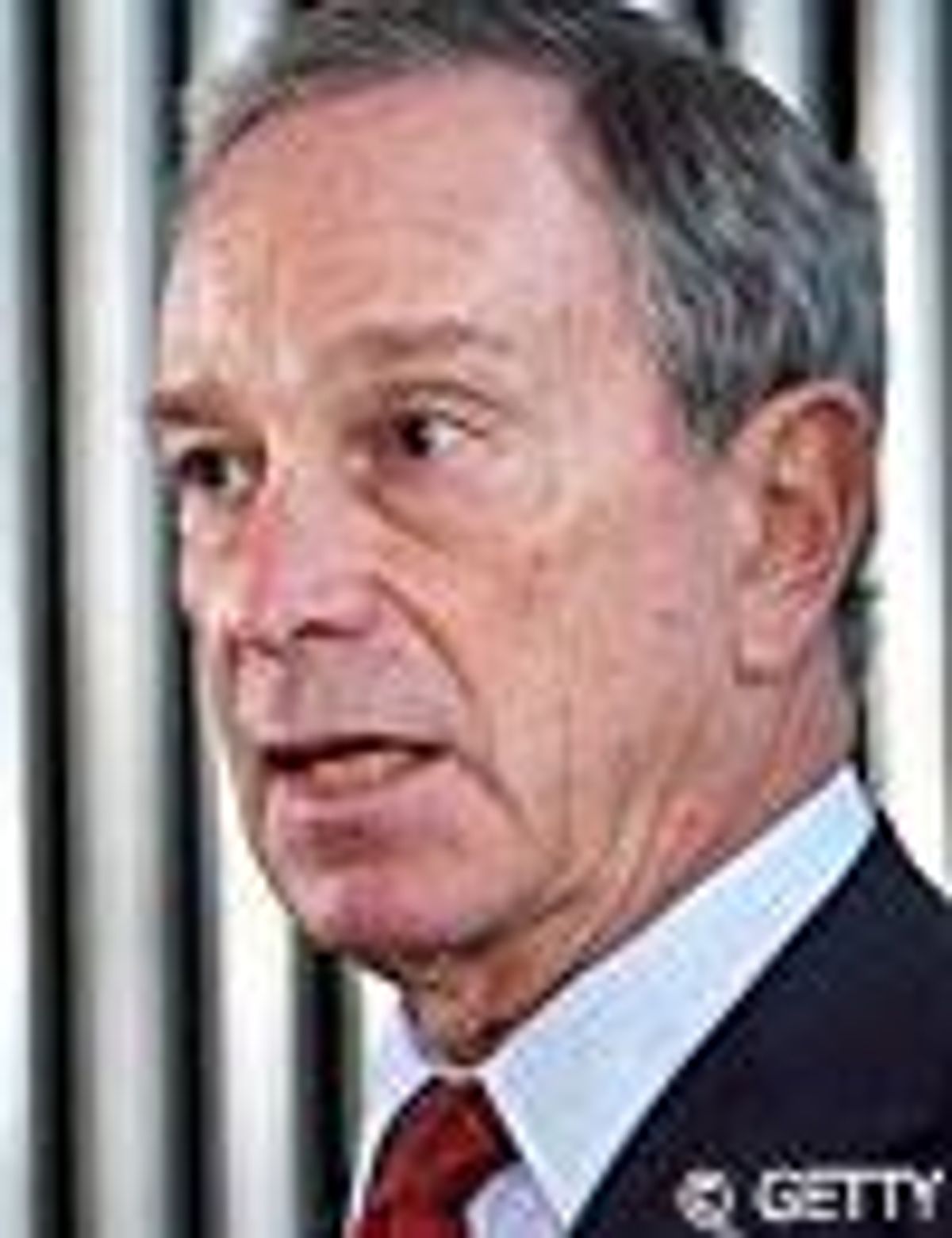New York City
mayor Michael Bloomberg has quietly been polling and
conducting a highly sophisticated voter analysis in all 50
states as he decides whether to launch an independent
presidential bid, associates said Wednesday.
The exhaustive
data collection started months ago, and when the review
begins shortly, it will provide the data-obsessed
billionaire businessman with the information he will
use to decide whether to make a third-party run for
the White House.
The scope of the
research, details of which were revealed to the
Associated Press, demonstrates how seriously Bloomberg is
considering running for president despite his
almost-daily denials that he isn't entering the race.
The extensive coast-to-coast research effort shows
that Bloomberg is willing to dig deep into his wallet simply
to gauge his chances of winning and lining up the
proper support network.
''They want a
hardheaded sense of their chances,'' said Doug Schoen, who
spearheaded Bloomberg's voter database efforts, known as
microtargeting, for his two mayoral campaigns.
Bloomberg's
spokesman Stu Loeser declined to comment.
Schoen says he is
not working for Bloomberg now, but he is part of the
mayor's inner circle and makes a convincing and
well-researched case in his new book, Declaring
Independence, about how a third-party candidate
such as Bloomberg could run for president and upset
the election this year.
Schoen was widely
recognized for his microtargeting work in Bloomberg's
first campaign. It was considered a groundbreaking concept
in 2001 to gather and use information on individual
voters, rather than voting blocs, to tailor and tweak
the campaign message, advertisements, and overall
theme.
The Bloomberg
database being created nationally would also be used in
those same ways if he were to run, Schoen said. But for now,
it will serve as the basis of gauging potential
support for a bid.
Using the
microtargeting model, research firms working for Bloomberg
are gathering comprehensive information on voters
throughout the country, such has who owns a home, has
children in college, where they vacation, type of car
or computer, and past political support. All the puzzle
pieces will then be arranged to create a picture of each
individual.
Most of the data
already exists in commercial databases that the
multibillionaire Bloomberg can simply purchase. It will then
be analyzed to determine how each voter fits into
several categories: ''strong supporter,''
''persuadable supporter,'' or ''potential volunteer.''
Bloomberg's
public denials of any interest in running are getting
weaker; he typically says only that he is ''not a
candidate.''
On Monday, he
participated in a bipartisan summit in Oklahoma that only
fueled speculation about his interest in seeking the
presidency.
William
Cunningham, who worked on Bloomberg's mayoral campaigns and
was communications director during his first term,
said it makes sense that Bloomberg -- who founded the
financial information company, Bloomberg LP -- would
gather voter information in this way.
''The mayor has
both built a business and managed the city by using data
and analyzing it, so it would seem to me that any other
venture he gets involved in, he'd be analyzing and
collecting data,'' he said.
For Bloomberg's
campaigns in 2001 and 2005, he spent more than $155
million, and in both cases, poured millions into the
development of his voter database. The work that
Schoen did in 2001 came as Republicans were also
developing a similar concept, known nationally during the
2004 presidential election as Voter Vault. Now,
microtargeting has now become a crucial tool for
political campaigns.
The obstacles to
a third-party victory are enormous, but Schoen argues
they are not insurmountable.
Previous
independent bids such as those by George Wallace, John
Anderson, and H. Ross Perot faced problems of money,
organization, and ballot access that someone like
Bloomberg could more easily overcome.
The 65-year-old
mayor already has the money -- Fortune magazine
estimates his worth in the neighborhood of $11.5
billion, and others have speculated it could be double
that.
Next comes
organization, and Bloomberg operatives believe they could
recruit a million volunteers within a month of launching a
campaign, aided by information gleaned from the voter
database.
A major task for
the volunteer force would be doing the ground work to
get him on the ballot -- a tricky process that differs
wildly by state.
The first
deadline to get on a state ballot is May 12 in Texas, and
petitioners can only begin collecting signatures after the
state's March 4 major party primary.
So far, the
surprise outcomes of the Iowa caucuses and New Hampshire
primary have added urgency and strength to the Bloomberg
operation, Schoen said.
''The uncertainty
in the nominating process on both sides makes it more
likely that Mike Bloomberg will explore a candidacy,'' he
said. (Sara Kugler, AP)



















































































Viral post saying Republicans 'have two daddies now' has MAGA hot and bothered